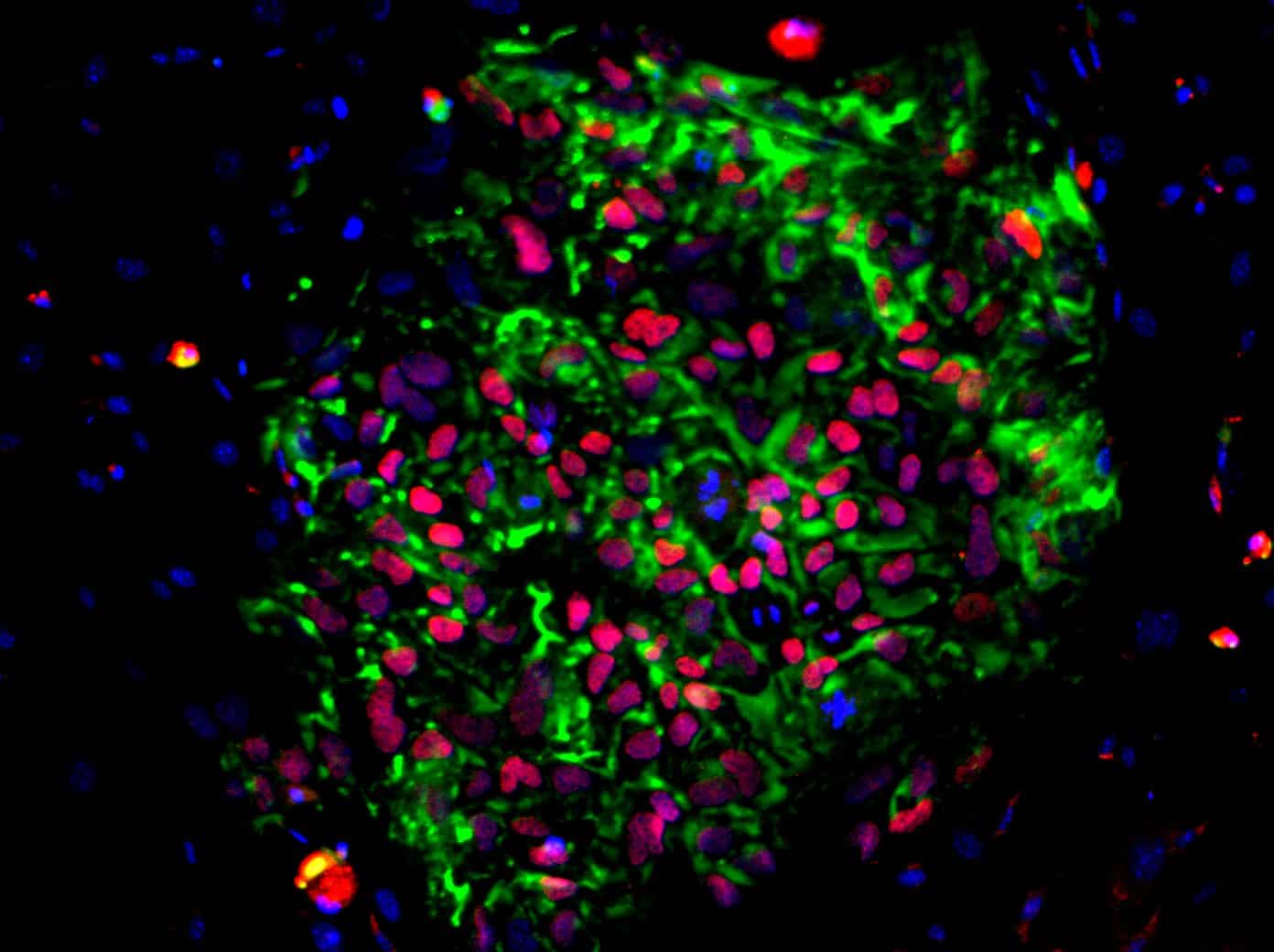Induced Pluripotent Stem Cells Hold Potential as Cancer Vaccines
Nearly a century ago, researchers observed that immunization with embryonic materials led to the rejection of transplanted tumors. More recently, studies identified shared transcriptome profiles and antigens on various tumor cells and embryonic cells. This has led to the hypothesis that embryonic stem cells (ESCs) could be used as immunization agents to promote an anti-tumor response.
And exploring this cancer-fighting strategy, scientists have now been able to successfully immunise mice against breast, lung and skin cancers, raising hopes that a human cancer vax could be just around the corner.
Like cancer cells, iPS cells can propagate indefinitely. They can be coaxed to assume many different kinds of cells, making them the perfect ingredient in regenerative medicine, and best of all, they can be generated from adult stem cells.
“We’ve learned that iPS cells are very similar on their surface to tumor cells,” said Joseph Wu, MD, PhD, director of Stanford’s Cardiovascular Institute and professor of cardiovascular medicine and of radiology. “When we immunized an animal with genetically matching iPS cells, the immune system could be primed to reject the development of tumors in the future. Pending replication in humans, our findings indicate these cells may one day serve as a true patient-specific cancer vaccine.”
“These cells, as a component of our proposed vaccine, have strong immunogenic properties that provoke a systemwide, cancer-specific immune response,” said Kooreman, who is now a surgery resident in the Netherlands. “We believe this approach has exciting clinical potential.”
In the course of their study, the team administered a group of mice the potential cancer vaccine – genetically matched, inactivated iPSCs in combination with a generic immune-stimulating agent known as an adjuvant. After four weekly injections of the vaccine, the mice were implanted with mouse breast cancer cells.
In the control groups the cancer grew and developed, but in 70 percent of the vaccinated mice the tumors reduced in size significantly, while cancer cells were completely eliminated in two mice, which went on to live for over one year following the experiment. The results were subsequently replicated using skin cancer and lung cancer cell lines.
In a second experiment, researchers inoculated mice with the iPSC vaccine and then injected them with mesothelioma cells, a form of lung cancer. Compared to mice that had not been vaccinated, those that got a mixture of stem cells and the immune booster mounted a robust defense against the cancer. In mice whose immune responses were strongest and most narrowly focused on the tumors, lung cancers were least likely to take hold and grow.
A third experiment using skin cancer cells demonstrated that an iPSC vaccine might be useful in preventing cancer recurrence or metastasis after an existing tumor has been surgically removed.
“This approach is particularly powerful because it allows us to expose the immune system to many different cancer-specific epitopes simultaneously,” Kooreman said. “Once activated, the immune system is on alert to target cancers as they develop throughout the body.”
The researchers next would like to study whether the approach works in samples of human cancers and immune cells in a laboratory setting. If successful, they envision a future in which people could receive a vaccine comprised of their own irradiated iPS cells as a way to prevent the development of cancers months or years later.
“Although much research remains to be done, the concept itself is pretty simple,” Wu said. “We would take your blood, make iPS cells and then inject the cells to prevent future cancers. I’m very excited about the future possibilities.”































